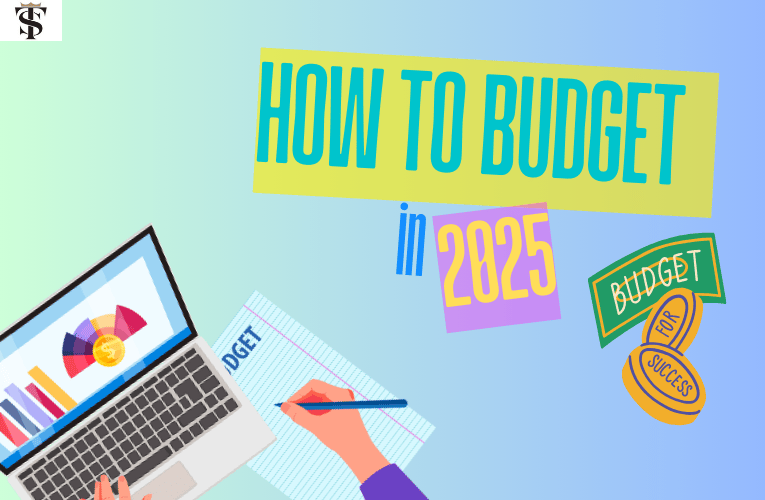How to Budget: Your Complete Guide to Budgeting for 2025
Budgeting—it’s not just about numbers on a spreadsheet. It’s about taking control of your finances, setting goals, and creating a plan for your money that helps you live the life you want. As we head into 2025, it’s the perfect time to reassess your financial habits and set yourself up for success. Whether you’re a seasoned budgeter or just starting, this guide will walk you through the process step by step.
1. Understand Why Budgeting Matters
Before diving into the how, let’s talk about the why. Budgeting isn’t about restricting yourself; it’s about prioritizing. It gives you clarity, helps you avoid debt, and ensures you’re putting your hard-earned money toward what truly matters to you—be it saving for a house, traveling, or simply building financial security.
2. Assess Your Financial Situation
Start by taking a snapshot of where you stand financially:
- Income: How much do you make every month? Include your salary, side hustle earnings, and any passive income.
- Expenses: Track where your money goes. Break it down into categories like rent, groceries, transportation, entertainment, and subscriptions.
- Savings & Debt: Note how much you’re saving each month and any debts you’re paying off.
You can use apps like Mint or YNAB (You Need A Budget) to make tracking easier.
3. Set Your Financial Goals for 2025
Goals give your budget direction. Do you want to build an emergency fund? Save for a big purchase? Pay off debt? Set SMART goals—Specific, Measurable, Achievable, Relevant, and Time-bound. For example:
- Save $5,000 for a vacation by December 2025.
- Pay off $10,000 in student loans by July 2025.
4. Choose a Budgeting Method
There are several popular budgeting methods to choose from:
- 50/30/20 Rule: Allocate 50% of your income to needs, 30% to wants, and 20% to savings and debt repayment.
- Zero-Based Budgeting: Every dollar has a job. Assign your entire income to expenses, savings, or debt until you hit zero.
- Envelope System: Use cash (or virtual envelopes) for each spending category to avoid overspending.
Pick the one that feels most natural and manageable for your lifestyle.
5. Create Your Budget
Now, let’s build your budget:
- List all your income sources.
- Categorize your expenses into fixed (rent, insurance) and variable (dining out, entertainment).
- Allocate amounts to each category based on your chosen budgeting method.
- Plan for irregular expenses (holidays, annual insurance premiums) by dividing them into monthly savings.
6. Stick to Your Budget
Creating a budget is one thing, but sticking to it is where the magic happens:
- Automate Savings: Set up automatic transfers to your savings account. Out of sight, out of mind!
- Use Budgeting Tools: Apps like PocketGuard and YNAB can help you stay on track.
- Review Weekly: Spend 10 minutes each week reviewing your budget and adjusting as needed.
7. Handle Common Budgeting Challenges
Budgeting isn’t always smooth sailing. Here’s how to navigate common hurdles:
- Overspending: Identify triggers (like online shopping) and set limits.
- Unexpected Expenses: Build an emergency fund to cover surprises without derailing your budget.
- Sticking to Goals: Celebrate milestones to keep motivation high.
8. Adjust Your Budget for 2025’s Challenges
Every year brings unique financial challenges. For 2025, consider:
- Rising Costs: Account for inflation by increasing your allocations for essentials like groceries and utilities.
- New Goals: Update your budget as your priorities change (e.g., saving for a wedding or starting a business).
9. Monitor and Reflect
A budget isn’t set in stone. Regularly review your progress:
- Monthly Check-Ins: Compare your actual spending to your budget. Adjust as needed.
- Yearly Review: Reflect on what worked, what didn’t, and how you can improve for the next year.
10. Enjoy Financial Freedom
The ultimate goal of budgeting is freedom—not restriction. When you control your finances, you reduce stress, gain confidence, and open doors to opportunities that align with your dreams.
Final Thoughts
Budgeting in 2025 doesn’t have to feel overwhelming. With the right tools, mindset, and strategies, you can create a plan that works for you. Start small, stay consistent, and remember: budgeting is a journey, not a destination. Your future self will thank you.
For more personal finance blogs :


